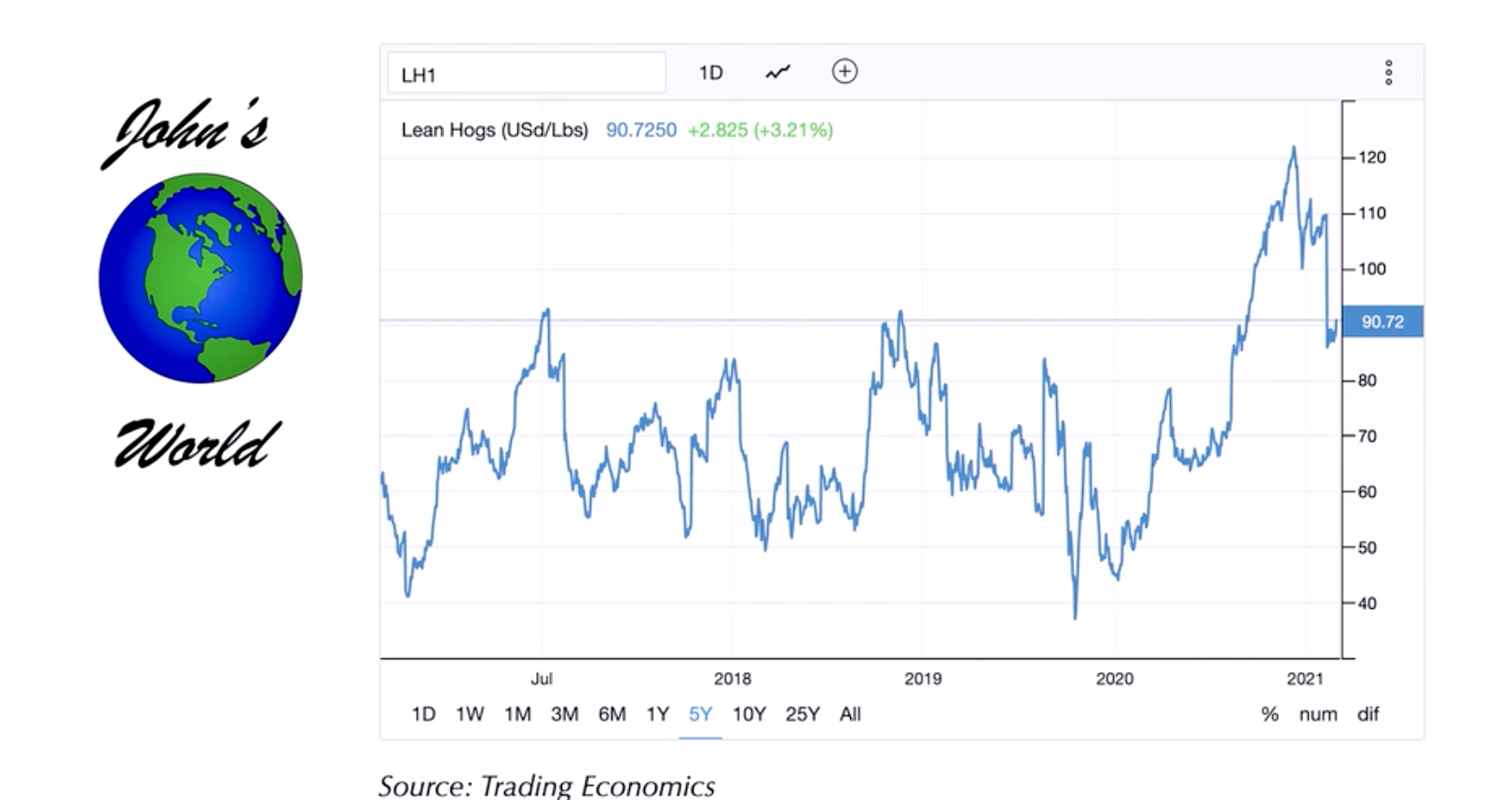John Phipps: Possible Lingering Issues with the Pipeline Supply Problem in Agriculture
U.S. Farm Report 09/04/21 - John's World
One word in about every other sentence these days is “pipeline”. It is used to describe processes from petroleum refining to manufacturing X-boxes. It seems intuitively clear – stuff can go in only as fast as it comes out. That’s when everything is working. When one part of the pipeline has a problem, it gets complicated.
By now we all know about chips for pickups and refrigerators. Why are pipeline problems so hard to iron out? Let’s start with some raw material like hogs. When the pipeline is working the price signals from the market are relayed to all links in the chain sequentially. When the pipeline is clogged by a failure in any link, economic signals are sent along the chain to inform participants about changed needs. But like great comedy, those signals are all about timing. And some other factors like capacities, storability, and money.
When the pandemic shut down meat processors as workers got sick and consumer demand collapsed, hog prices plummeted. You can see what happened here clearly on the chart chart of hog prices below. With a gestation period of 114 days, there is roughly 6-month delay from the time market prices indicate a strong demand, and the pigs are farrowed. Then add the time to feed the hog to market weight, and the result is approximately a year from market signal to supply change. When the hog market tumbled as the first COVID wave hammered demand, producers stopped breeding hogs that could not possibly make a profit.

Roughly a year later, as demand recovered, all those hogs that weren’t born helped create less supply and a price spike. Now we are at the trickiest part of all. Predicting the demand for pork a year in advance is difficult under normal conditions, but the pandemic and economies have not performed like we hoped. Hence this process could lather, rinse and repeat.
Products like pork are hamstrung, so to speak, by their relatively low storage capacity and that long response time. Fresh produce has similar problems. Navigating the possibilities is challenging. Even seemingly simple production chains have struggled with interruption. For almost all of them, future demand will depend on pandemic control, and supply on how fast inputs can react. Some processes like oil refining or chemical manufacturing require extensive effort to restart from a shutdown. The winter freeze in Texas is impacting gas prices now due to that startup problem.
Depending on the pipeline, getting back to pre-pandemic efficiency and output could take much longer than we expect for many products.







